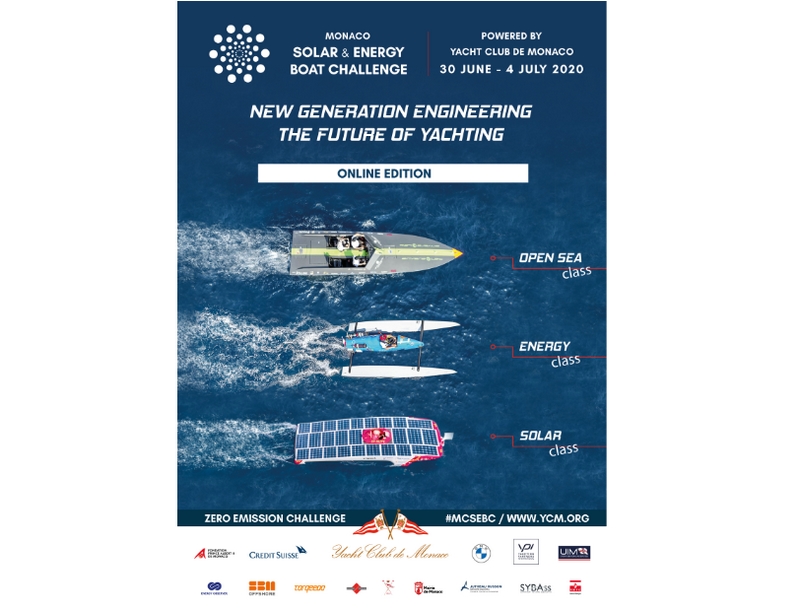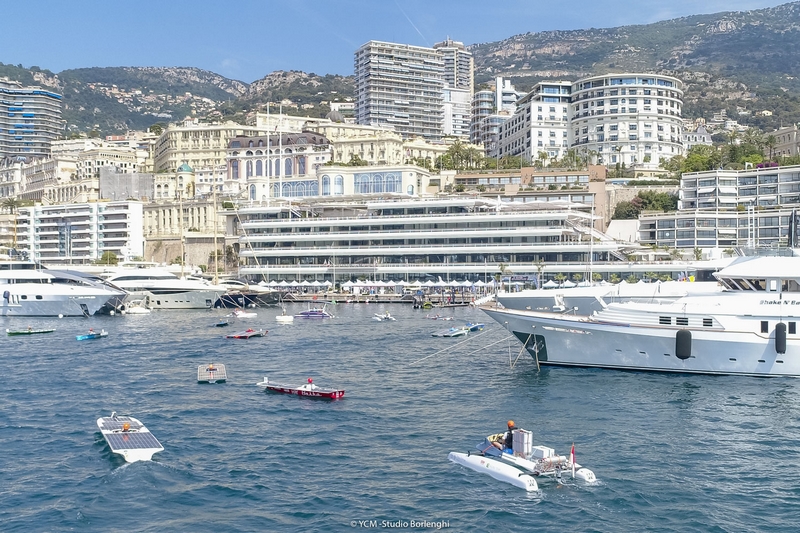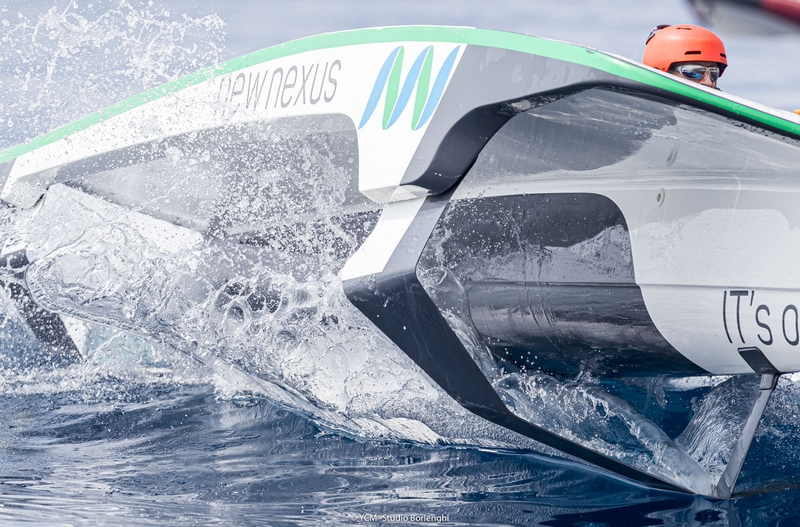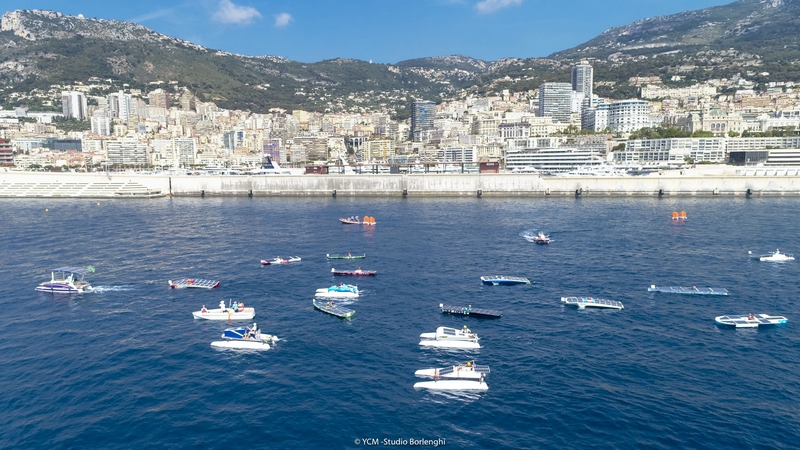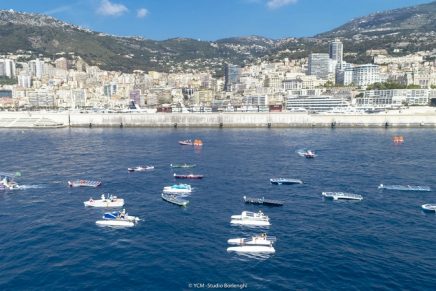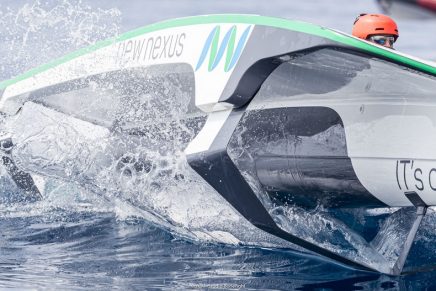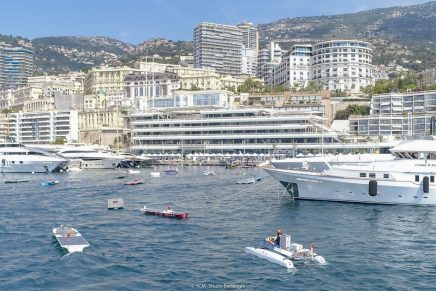For yachting fans the meeting is still on, behind computer screens, from 30th June to 4 th July 2020, lifting the veil on what’s new at this highly anticipated 7th Monaco Solar & Energy Boat Challenge.
Given the coronavirus crisis situation and to continue supporting the hard work already put in by teams, Monaco Solar & Energy Boat Challenge felt it had to adapt. The MCSEBC is an international challenge open to the public, that welcomes students and professionals from across the world to race in three different classes: Energy, Solar and Open Sea Class.
A first-ever “virtual” competition that fully respects health policies around the world.
Be it improved battery design, solar panels or employing biomimetics to replace the propellers on a boat to imitate the way fish swim, these are just some of the advances made at the last edition of The Monaco Solar & Energy Boat Challenge . And bets are on that this year will see many more new discoveries and technical feats unveiled.
Participants in the three classes – Solar, Energy Class and Open Sea – have until 31st May to submit a presentation of their project to a Technical Jury of professionals, key players in the industry and partners. Each team then has an opportunity to defend their work in an oral interview organised between 30th June and 4th July, before an online awards ceremony on Saturday evening.
Three awards
There are three awards. An Innovation Prize for the most advanced improvements of visionary and relevant innovations, the aim being to promote systems that can be adapted to meet the sector’s requirements from a production and pricing point of view. Candidates also have to prepare a written presentation of their project supported by photos, sketches or videos, plus a critical analysis of the advantages and disadvantages. Their conclusions should be based on tests carried out to prove the efficiency of the boat and its clean energy fuel source.
The Eco Conception Prize puts the spotlight not only on the efficiency of the materials and processes used, but also its contribution to science and the teams’ commitment to sharing good practices. Participation in a collaborative approach, preventive actions, the boat’s performance and reduced impact on the environment are key cornerstones of the project in this category, which also requires a written presentation and analysis to be submitted as above. Finally, the Spirit Prize reflects the spirit of the competition by rewarding participants for originality in how they present their work, the team, their boat, how it evolved and the technical work achieved over the past few months. The winners in each of the three categories (all classes combined) will receive a cheque for €2,000.
Exchanges all year round
Living up to its reputation as ‘Capital of Yachting’, Monaco is positioning itself as an incubator of new ideas in this field, as evidenced by the year-round webinars, free online technical discussions chaired by professionals and open to all. These meetings (five held so far) provide a valuable link between the industry and contestants, giving them access to new information to feed into their experience. This series of virtual conferences kicked off with a focus on the evolution of ship design and engineering chaired by Simon Brealey (Lateral Naval Architecture), in particular the current specific needs of superyachts in this sector.
Erwan Grossmann (Kairos) then reviewed bio-composites production and their environmental impact. A relevant debate not only to highlight the general and mechanical properties of these fibres, resins and alternative base materials but also to understand how they can influence the evolution of yacht design.
While these sessions discuss the issues, they are also a chance to talk to the experts, people like Jérémie Lagarrigue (Energy Observer) who answered numerous questions relating to the Energy Class, and Franziska Steidle-Sailer and Christine Funck (Aquon) who redefined sustainable yachting. At the webinar on 30th April, marine propulsion completed a non-exhaustive list of topics. There was talk of an energy-consuming, dangerous, costly, noisy propeller, so many black marks against current systems that a solution has to be found. That is according to Harold Guillemin (FinX) who gave an update on progress being made with biomimetic technology that could replace it with compact evermore efficient membranes.
